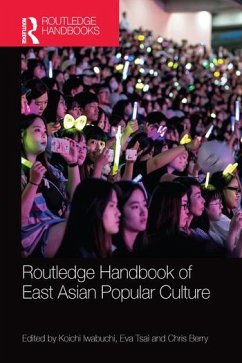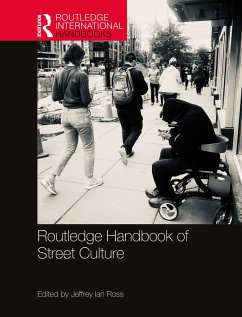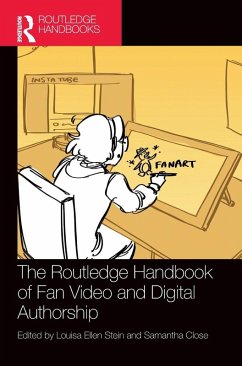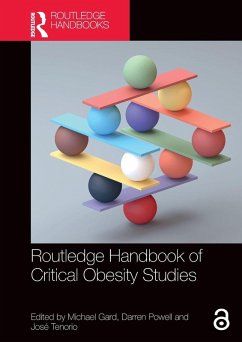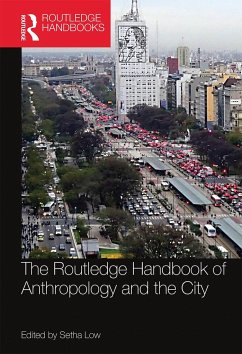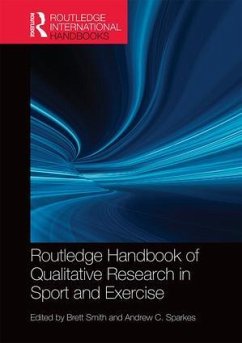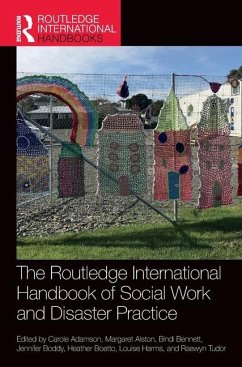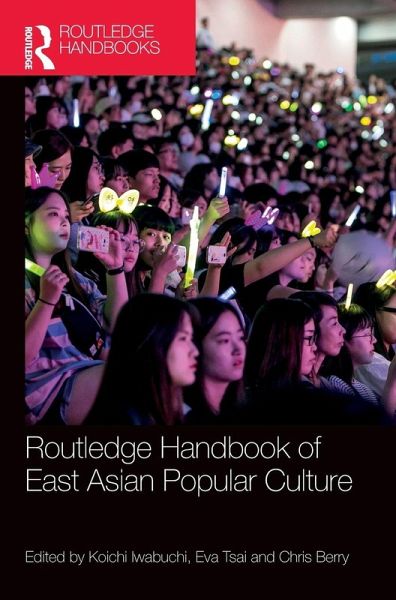
Routledge Handbook of East Asian Popular Culture
Versandkostenfrei!
Versandfertig in 1-2 Wochen
280,99 €
inkl. MwSt.
Weitere Ausgaben:

PAYBACK Punkte
140 °P sammeln!
Since the 1990s there has been a increase in cultural flows and connections between the countries in the East Asian region. Uneven but multilateral exchanges of Japanese, Korean, Taiwanese, and Chinese products have led to the construction of an 'East Asian Popular Culture'. This is both influenced by, and in turn influences, the national cultures, and generates transnational co-production and reinvention. As East Asian popular culture becomes a global force, it is important to understand its characteristics - particularly its transnational nature. Contributors explore East Asian experiences a...
Since the 1990s there has been a increase in cultural flows and connections between the countries in the East Asian region. Uneven but multilateral exchanges of Japanese, Korean, Taiwanese, and Chinese products have led to the construction of an 'East Asian Popular Culture'. This is both influenced by, and in turn influences, the national cultures, and generates transnational co-production and reinvention. As East Asian popular culture becomes a global force, it is important to understand its characteristics - particularly its transnational nature. Contributors explore East Asian experiences and reconsider Western theories on cultural globalization.





